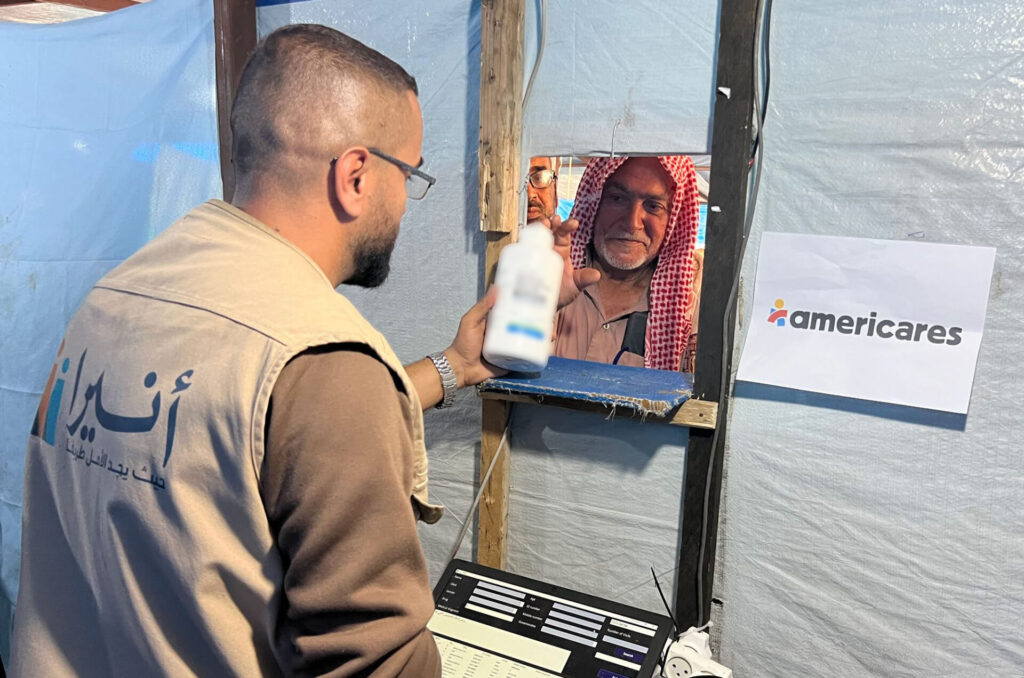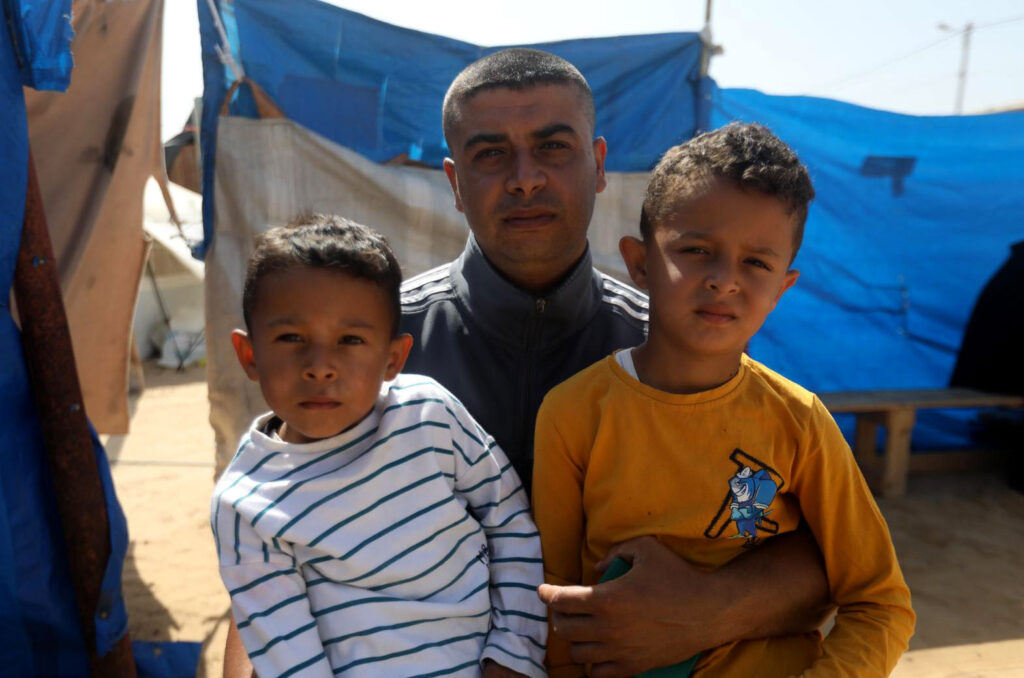Jul, 2012
Samar Abu Jaraad knew something was wrong when her four-year-old son Bahaa started complaining of stomach aches.
“I had been noticing Bahaa’s pale face and his complaints of stomach pain. And he wasn’t eating very well.” She immediately had her four children, ranging in age from two to nine, tested and discovered that three were infected with parasites. So she quickly put them on a 20-day treatment and made sure they practiced good hygiene, like washing hands, drinking clean water and eating clean food.
Samar says she never would have suspected her children’s ailments if her neighbor hadn’t told her about the special training that Anera organized to combat parasites. “I joined the Anera awareness training at Bahaa’s preschool and I really enjoyed it because I gained new and valuable information,” said Samar. The training reviewed key points about parasite infection, from causes and symptoms to complications from infection. The training also focused on prevention through personal hygiene, clean food and correct stool sample analysis.
Samar knows the importance of good hygiene, especially under the difficult living conditions that she and many families endure in Gaza.
She and her family are living in the makeshift home of pieces of wood and cloth and blankets since her husband lost his job and they no longer have money to finish building their own home. Samar has set a table in one corner with dishes, pots and pans that has become her kitchen. In another corner she has a tidy pile of clothes on shelves because there is no room for a closet. Three mattresses on the sandy ground serve as seating for guests and later for sleeping at night. But, she says, that isn’t always easy since rats are a constant menace no matter how clean she keeps her home.
But, she is relieved now after receiving good news from the latest stool tests for her children: all clear. “I was delighted to see the tests and it’s wonderful to see their healthy faces.” Though her budget is limited, Samar says she will try to have her children tested regularly to make sure they remain parasite-free.
Thanks to funding from the U.S. consumer health company Johnson & Johnson, Anera partnered with the Palestinian Red Crescent Society to conduct the tests in two clinics in Beit Lahia and Khan Younis. The tests and treatment were free of charge. Anera’s 40 awareness sessions reached more than 300 mothers, referring them to the clinics for tests and treatment. More than 350 personal hygiene kits were distributed, each one containing soap, shampoo, toothpaste, toothbrushes and sponges.
Intestinal parasite infection rates are usually higher in poor communities where there is environmental pollution and little or no sanitation service. Parasites can lead to serious health issues like malnutrition and digestive complications, liver and intestinal damage. Parasite infection is widespread among Gaza’s children.
Anera’s research during its multi-year Milk for Preschoolers program found that intestinal parasites are one of the major causes of anemia among preschoolers. “Because of our continuing commitment to the health and well-being of the children of Gaza, we were determined to do whatever we could to help fight parasite infection and anemia.” said Nahed El-Wahidi, director of Anera’s Gaza office.


